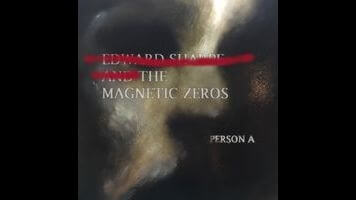Edward Sharpe And The Magnetic Zeros shift from sing-alongs to substance

When former Ima Robot frontman Alex Ebert debuted his pseudo-folk-cult Edward Sharpe And The Magnetic Zeros with Up From Below in 2009, critics could temporarily set aside their aversion to the band’s aesthetic and concept—which was lifted from former Tripping Daisy frontman Tim DeLaughter’s pseudo-folk-cult The Polyphonic Spree anyway—to acknowledge (if begrudgingly) the attractively warm qualities of the album and infectious single “Home.” As the group pressed on, however, that tolerance rapidly faded, and open-minded consideration was in short supply for the majestically subdued Here in 2012 and the fuzzed-out groove of 2013’s self-titled effort. Without much more to lose, they approached the new PersonA open to taking some big risks, and, for those that can clear their head of preconceptions, it largely delivers.
Starting from a foundation of psychedelic folk-pop that’s been the band’s bread-and-butter to date, PersonA quickly veers off into unconventional, exploratory directions. Recorded at the former Piety Street Studios in New Orleans—which Ebert had recently purchased—many songs soak up that venue’s surroundings, and slinky opener “Hot Coals” doesn’t waste much time before wandering into a jazzy haze where the 10 members seemingly half-improvise their performances in a trance. As the track passes the seven-minute mark, it’s breezed through a softly building guitar intro, rumbled along a quiet river of piano and brisk percussion, and settled into a shimmering sunset of trumpets and organ. The six-plus minutes of “Wake Up The Sun” take similar tacks and jives, stretching out from a meandering piano motif into a sunny refrain before devolving into a whirl of instruments and dramatic chanting.

 Keep scrolling for more great stories from The A.V. Club.
Keep scrolling for more great stories from The A.V. Club.